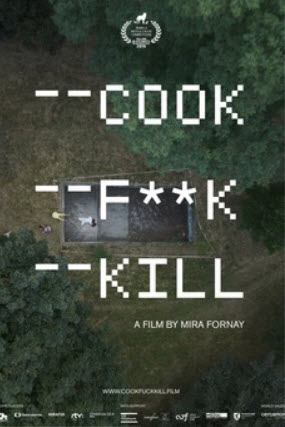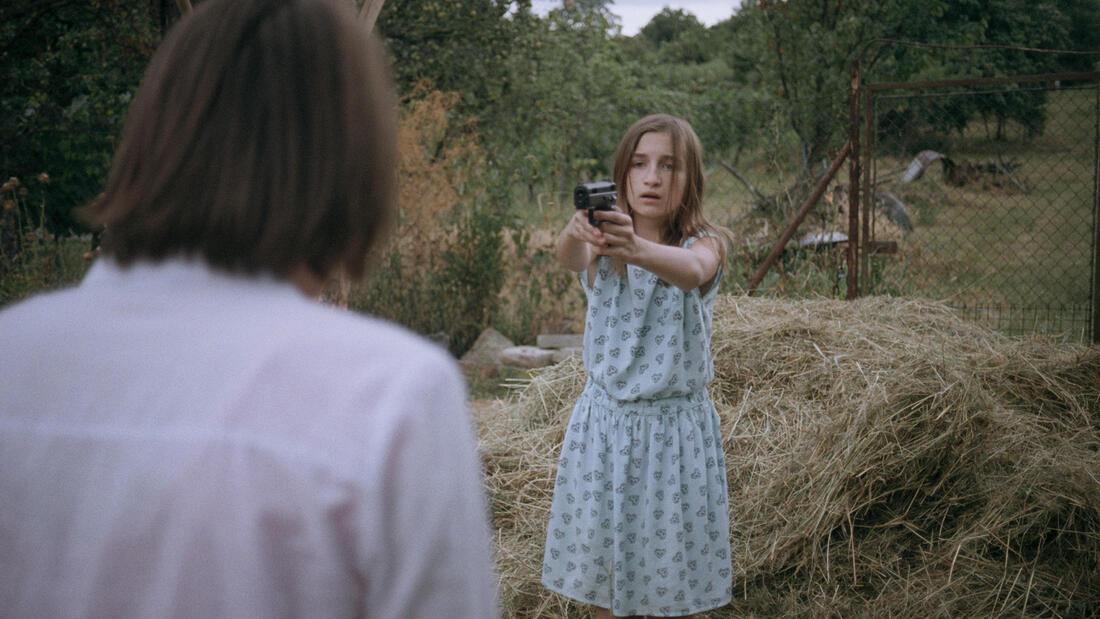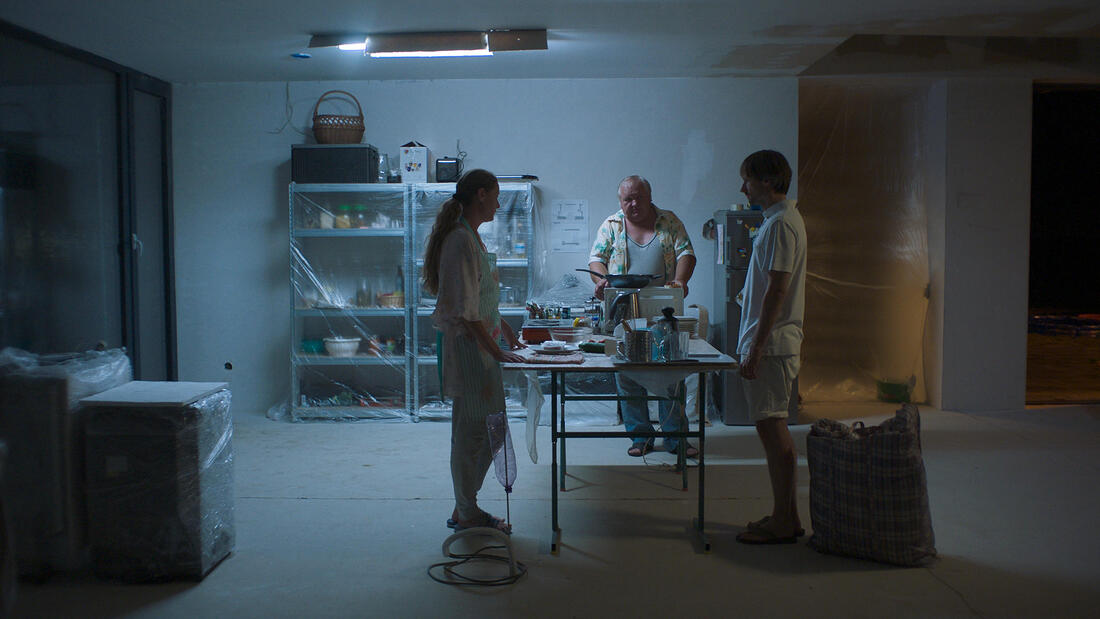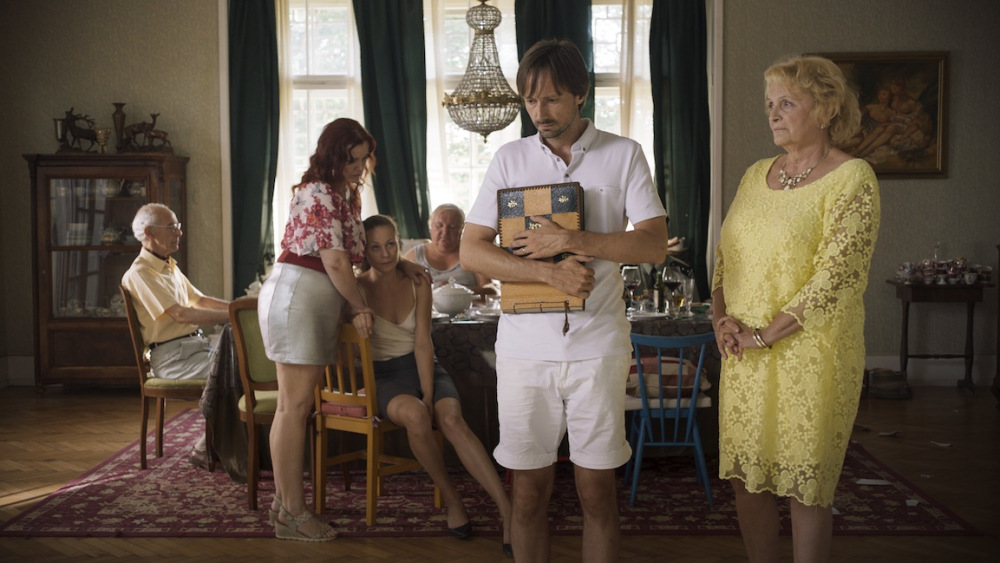|
“Cook F Kill” (2019) follows a man called Jaroslav trying to get his mother to hand her house over to his wife. In order for that to happen a convoluted and connected series of other events need to take place in the right order. If each person in the chain gets what they want he will get the house for his wife and be able to see the children again. But along the way there are interruptions to the timeline and even the gender of some characters. We’re caught in a loop with violence at every turn. I found this film quite challenging to watch. Not because it was explicitly violent, although it was in places, but because of the structure used to illustrate the point - domestic violence and aggressive behaviour is a cycle that’s very hard to escape. It’s passed on to children and other relationships. So the structure reflects that cycle. Some scenes are revisited with different outcomes or different characters. I understood the message in that sense but the telling of it was a little too jumbled and non-linear for me to receive the full impact. At times though, the theme was summed up in just one line or action. At one point Jaroslav (Jaroslav Plesl) says to his father-in-law “I love her exactly as you loved her mother” while hitting his wife Blanka (Jazmína Cigánková) in the face. For all the poetry of the rest of the film some parts were a blunt instrument. There was an interesting linguistic aspect which I thought at first was to do with the translation into English subtitles. Jaroslav and Blanka’s children were referred to as “children” without the definite article, not “the children”. Like a hiccup in the middle of the sentence, it jars just enough to draw attention to itself and that slight interruption to the brain makes the audience realise what the wider meaning is. The children now become non-specific and could belong to anyone. The blocking and acting was overly deliberate which was very much in keeping with the style of the film - absurdist and staged to highlight the point. At times this worked very well, with each character falling into the place they needed to be, through destiny or from being unable to break out of their cycle. It didn’t warm me to any of them but I doubt it was supposed to. The Greek chorus of local women was a part of this deliberate style. They appeared at various points and spoke in unison. It made me feel like the eyes of society were always there, ready to speak up in judgment but, importantly, they don’t intervene. I mentioned earlier a gendered element. The gender of the actors playing the characters, like the timeline, was not constant. So while the majority of victims of domestic violence are women and the majority of perpetrators are men, it is still something that infects relationships of all genders. This aspect, although a little hard to follow earlier on, came to make sense towards the end of the film. And it’s a very interesting way to introduce this aspect into a film of this weight in a responsible way. As I am cisgender I will be looking out for reviews from trans and non-binary critics to see what they made of this aspect. Despite not particularly enjoying it at the time, this film has stuck with me and shows how filmmaking techniques can help explore weighty issues in a non-standard way. Comments are closed.
|
AuthorHi, I'm Caz. I live in Edinburgh and I watch a lot of films. My reviews focus mainly on women in film - female directors or how women are represented on screen. Archives
December 2021
Categories
All
|






 RSS Feed
RSS Feed
